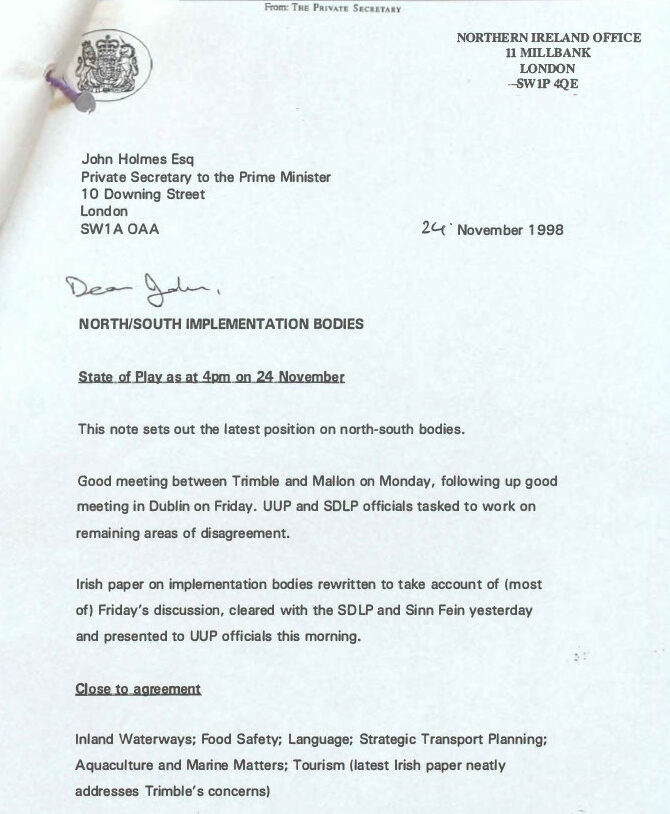
Extract from a note by a UK government official on a meeting about cross-border bodies November 1998
Context notes
Part of the Belfast Agreement of 1998 was the setting up of cross border bodies – organisations which took responsibility for a range of issues across the whole island of Ireland. For example, the North/South Ministerial Council was established. The Council takes the form of meetings between ministers from both Ireland and Northern Ireland and is responsible for twelve policy areas. Six of these areas are the responsibility of corresponding North/South Implementation Bodies. For Unionists in particular, agreeing to these bodies was a massive step as it allowed for deeper cooperation with the Irish government on matters affecting Northern Ireland and Ireland. Trimble was the leader of the Ulster Unionist Party. Mallon was Seamus Mallon, Deputy Leader of the Social and Democratic Labour Party (SDLP), the main Nationalist party at this time.
Transcript
NORTHERN IRELAND OFFICE
11 MILLBANK
LONDON
SW1P4QE
John Holmes Esq
Private Secretary to the Prime Minister
10 Downing Street
London
SW1A OAA
24 November 1998
Dear John
NORTH/SOUTH IMPLEMENTATION BODIES
State of Play as at 4pm on 24 November
This note sets out the latest position on north-south bodies. Good meeting between Trimble and Mallon on Monday, following up good meeting in Dublin on Friday. UUP and SDLP officials tasked to work on remaining areas of disagreement. Irish paper on implementation bodies rewritten to take account of (most of) Friday’s discussion, cleared with the SDLP and Sinn Fein yesterday and presented to UUP officials this morning.
Close to agreement
Inland Waterways; Food Safety; Language; Strategic Transport Planning; Aquaculture and Marine Matters; Tourism (latest Irish paper neatly addresses Trimble’s concerns)
Questions
Content
- Who was meeting and where did they meet?
- What areas of agreement were close?
Inferences from the Content
- What can a historian infer from the activities described in this document?
Inferences from the Context
- What inferences could a historian make from the fact that this meeting was happening?
Lines of Argument
Which line(s) of argument A-E could use this document as supporting evidence?
